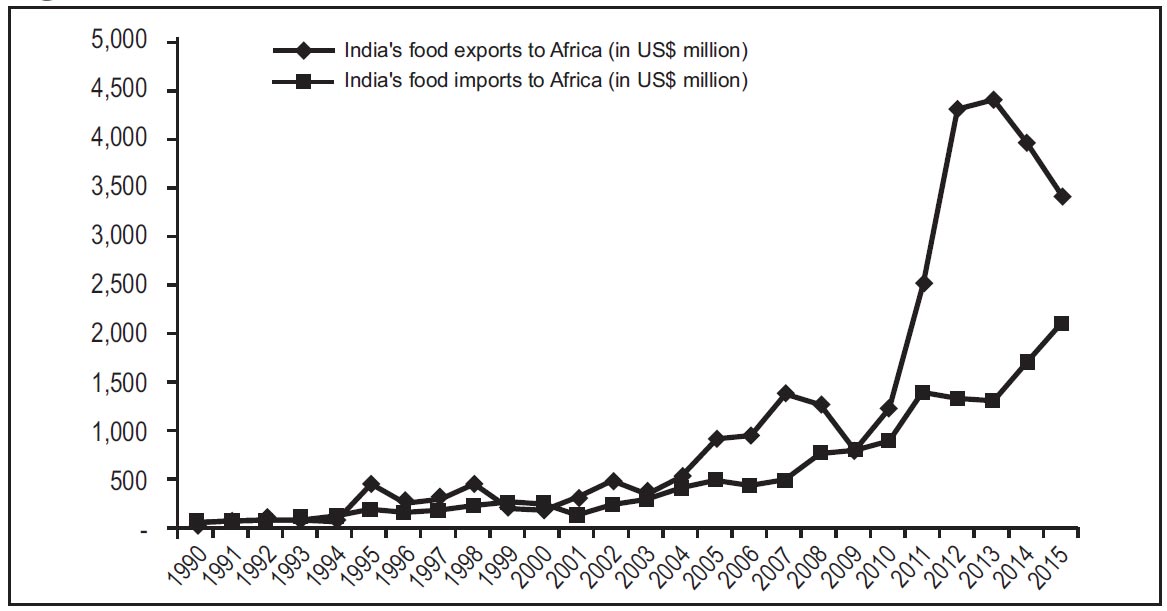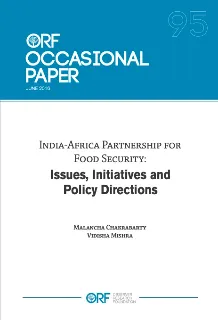The last decade saw a marked increase in cooperation between India and Africa in the area of food security, which has taken centrestage as a key theme in all three India-Africa Forum Summits that have taken place in succession in 2008, 2011, and 2015. In the second India-Africa Forum Summit in 2011, India and Africa committed to cooperate for increasing agricultural output and achieving the millennium development goal of halving by 2015 the proportion of people who suffer from hunger and undernutrition.1 The two nations reaffirmed their commitment in the third India-Africa Forum Summit held in October 2015, making a pledge to improve farming techniques through affordable technology, use of improved crop varieties and irrigation facilities, and promoting investment in agri-business and food processing industries.2
Trade in food articles between India and Africa has been posting rapid growth since 2000 (See Figure 1). India's food imports from Africa, for instance, increased from US$ 138.6 million in 2001 to US$ 2,090 million in 2015 at a compound annual growth rate of eight percent. India's food exports to Africa grew even more, particularly of rice, with a five-fold increase from US$ 802.9 million to 4,369.5 million in the brief period of 2009 to 2013. Food articles currently account for over 85 percent of the total 3 agricultural trade between India and Africa. Indian investment in Africa's food and agribusiness sector has also grown rapidly in recent years.
Figure 1: Trade in food articles between India and Africa (1990-2015)

Source: Authors' graph using data from UNCOMTRADE
However, this area has received less scholarly attention than India's cooperation with African countries in the fields of energy, and science and i technology. This paper aims to fill this critical research gap. The first section of this paper discusses the evolution of the concept of 'food security' and explains why it continues to be a development priority for both India and Africa by highlighting the common challenges of hunger, undernutrition and poor agricultural productivity. Section 2 provides the rationale for greater cooperation between India and Africa, arguing that African countries can learn from India's development experience especially in cereal production. Section 3 discusses India's efforts towards African food security by focusing on the former's initiatives in promoting agricultural research and capacity building in Africa, providing improved seeds and agricultural inputs, extending credit lines, and encouraging private-sector participation. Section 4 examines the drivers of India's expanding role in African agriculture. Section 5 provides policy directions towards more effective partnership, and the paper concludes with Section 6. India's initiatives in other agricultural sectors such as cotton and sugar are beyond the scope of this paper.

 PDF Download
PDF Download




 PREV
PREV



